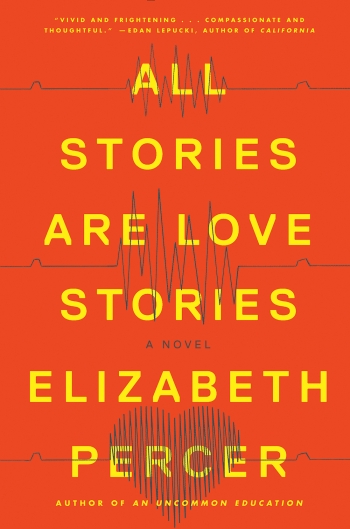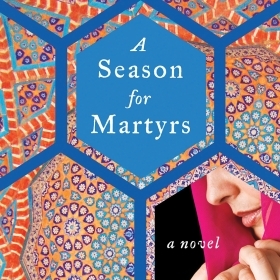Dazzlingly plotted and thematically rich, Elizabeth Percer’s second novel, All Stories Are Love Stories, opens by drawing on graffiti anonymously scrawled on the ruins of San Francisco’s Sutro baths, demanding that we “see beauty in decomposition.” When we immediately learn that two catastrophic earthquakes, followed by fire and unimaginable human misery, are about to occur—on Valentine’s Day, the sappiest of all holidays—one might wonder where the “love” of her title enters in, and how genuine its presence might be. Yet Percer, a three-time Pushcart Prize nominee and author of An Uncommon Education (2012), compellingly delivers a story of love in the ruins that transcends the easy aphorism of her title.
Through telling stories of diverse characters who intersect amid disaster, Percer harnesses a rich cross-section of San Francisco: from artistic Max, who encounters his estranged high-school sweetheart, Vashti, and is given an opportunity to mourn the daughter he never knew, to Stanford geologist Eugene, who searches frantically for his ailing lover, Franklin, all the while haunted by his inability to prevent catastrophe. Moving back and forth in time and across space and place, their stories jostle together, revealing the extremes of courage and compassion—and, yes, love—that tragedy can inspire.
Yet it is Percer’s affection for San Francisco—“a movie set, a Brigadoon, a strange, shape-shifting city”—and her loving detail of its city blocks, its complex history, and its diverse people, that ultimately forms the true center and poetry of this tale. The life of a place, she asserts, transcends any one ruin or atrocity. Drawing on the history of the 1906 earthquake—the United States’ greatest pre-Katrina natural disaster—Percer showcases her plentiful knowledge of how the city has “meant so many things to so many people,” gesturing to its rich histories of economic and political turmoil: its role as a center for queer belonging and loss; its status as shelter for runaways, artists, and misfits; and its current incarnation as home to the moneyed elite.
Enriched by these particulars of space and place, and charged throughout by the press of time and spectacle of disaster, All Stories Are Love Stories ends with a poignant sense of the vitality of the ordinary, of the small but profound acts of connection that occur as we seize love, even in the midst of tremendous loss.
Hinrichsen, an English professor at the University of Arkansas, is the author of Possessing the Past: Trauma, Imagination, and Memory in Post-Plantation Southern Literature.








We ask that those who engage in Wellesley magazine's online community act with honesty, integrity, and respect. (Remember the honor code, alums?) We reserve the right to remove comments by impersonators or comments that are not civil and relevant to the subject at hand. By posting here, you are permitting Wellesley magazine to edit and republish your comment in all media. Please remember that all posts are public.